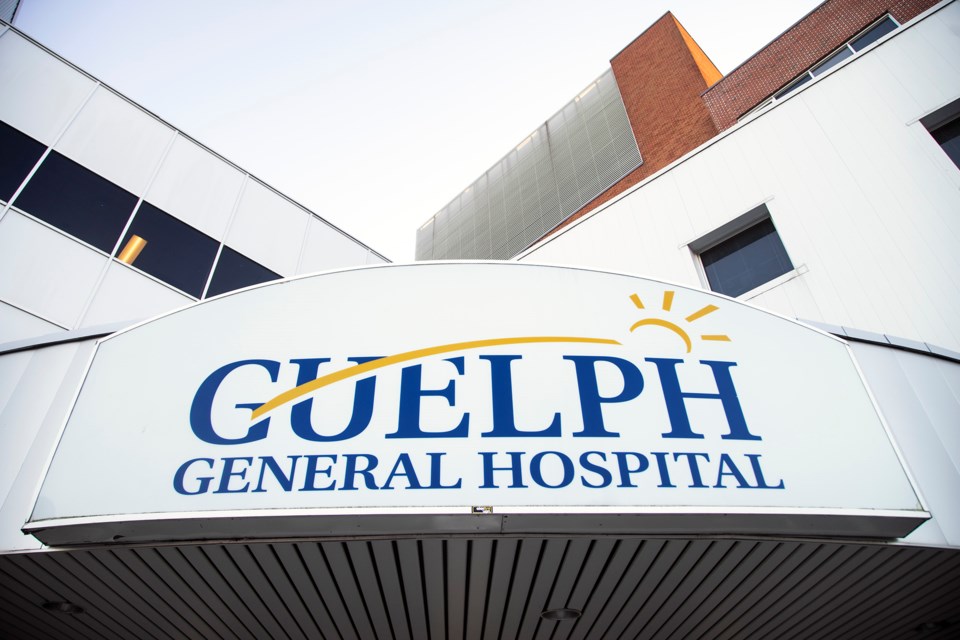Patients across the country are facing longer-than-ever wait times for surgery, according to a recent report by the Fraser Institute, and Guelph is no exception.
Although Guelph General Hospital has been able to resume operating room volumes that exceed its pre-pandemic levels, patients are continuing to see wait times climb.
According to vice-president of patient services and chief nursing executive Melissa Skinner, 60 per cent of outpatient surgery wait times and 54 per cent of inpatient wait times for surgery at GGH are longer than the target time.
The hospital currently has a total of 4,079 patients waiting for surgery, 80 per cent of whom are for outpatient procedures, meaning they don’t require a hospital stay.
Arthroscopic (hip and knee) and cataract surgery are among the procedures with the longest wait times; the bulk of people waiting for surgery at GGH are waiting for either cataract or hip and knee replacement surgery, said Skinner.
Ontario Health West currently has 8,412 people on waitlist for cataract procedures; GGH has just over 1,600 – considerably less than in July, when they had over 2,400.
Still, from specialist to consultation, the wait time for cataract surgery in Ontario averages around 20 weeks; at GGH it’s 37.4.
“The impact of surgical shut downs during the pandemic has led to a dramatic increase in wait times for cataract procedures,” Skinner said. But over the summer, the hospital teamed up with Clear Vision, a Kitchener-based surgical eye centre, to increase the number of surgeries they could do.
This partnership resulted in a 50 per cent increase in the number of surgeries they’re able to complete, Skinner said. “We hope over time to increase our case numbers and bring down our waitlist and wait times considerably, but it will take years for us to completely recover."
But the backlog of cataract surgery isn’t the only problem.
Nationally, the wait for hip and knee replacement surgery is averaging at about 38 weeks, with a benchmark goal of 26. In Ontario, the wait is 20.5 weeks after seeing a specialist – considerably lower than the national average. But still, five months is a long time to wait, and it’s even longer at GGH right now.
At GGH, for hip replacements, the average wait time from consultation with a specialist to surgery is 292 days, or 41 weeks. Knee replacement surgery is even longer, at 346 days.
Skinner believes the demand for these surgeries is “due to the demographic shift in our population age. As we age, the need to access these surgeries increases.”
Plus, she said wait times in general are higher than before the pandemic.
“The impact of the surgical shutdowns has seen the number of people waiting increase dramatically,” she said. And whether or not surgical wait times are on target varies greatly from surgery to surgery.
For instance, gynecological and hernia surgery are also seeing lengthier wait times at GGH and across the province.
From 2021 to 2022, the wait times for gynecology increased by 28 per cent across the province, and currently sits at an average of about 13.7 weeks provincially – 84 per cent higher than what the Fraser Institute deems a reasonable wait time. Add in the wait from the initial referral from a general practitioner to the surgery itself, and that wait climbs to 25.7 weeks.
Hernia surgery has an average wait time of 24.8 weeks from meeting at GGH, but only 13 weeks provincially. The Fraser Institute report deems a medically reasonable time to be eight weeks.
Meanwhile, some wait times at GGH are much better than the provincial average. Nose and sinus surgery, for example, has an average wait time of just 8.7 weeks at GGH, while the provincial average is nearly tripled at 24 weeks. In this case, the wait time at GGH is significantly better than the 15 week-wait Fraser Institute deems medically reasonable.
The reasoning behind these variations is complex, Skinner said.
“There could be many factors impacting them such as the need to complete higher emergency or urgent surgical cases which can delay the booking of less urgent cases.”
How quickly a surgery is scheduled is also largely dependent on patient priority – for instance, if a patient could die or experience severe symptoms if the surgery is not performed quickly.
“As the system recovers, the focus in Ontario is to book the most urgent first and then focus on the people who have been waiting the longest. Pressures on inpatient beds mean that it is a challenge for organizations to get back to their pre-pandemic levels of operations.”
Skinner said they know patients who are waiting for long periods of time can see a further decline in their health.
“We continue to all work together to try to complete as many long wait cases as possible. This is monitored at the hospital, regional, and provincial levels and is a top priority in our systems recovery,” she said.
